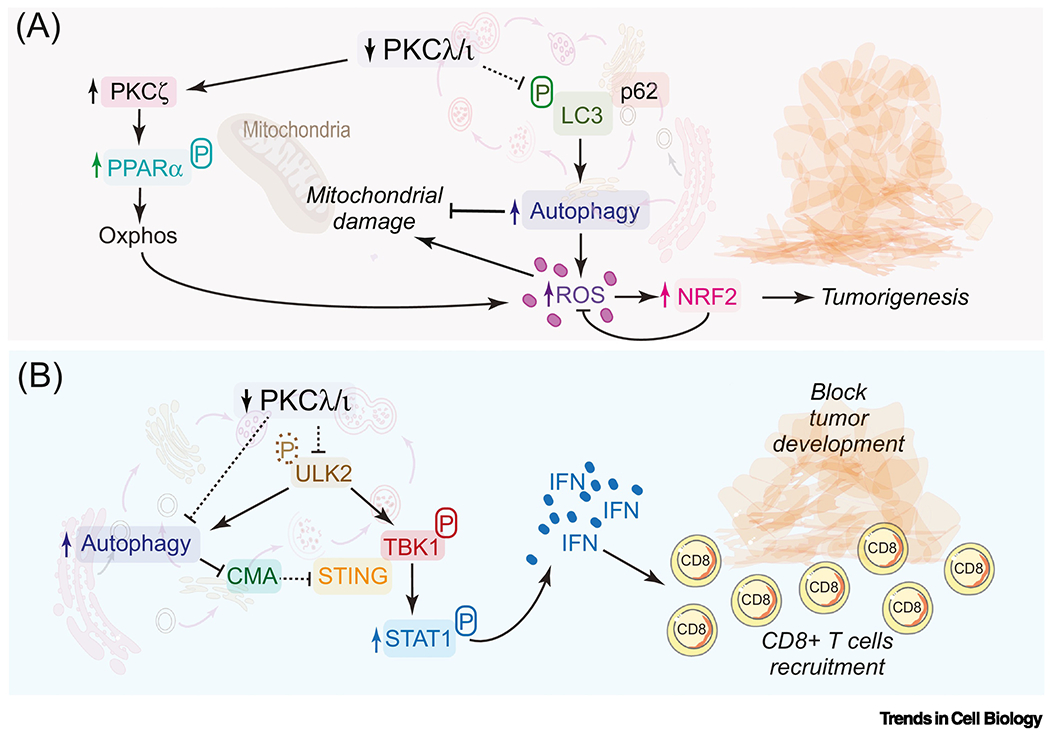Figure 4. The regulation of autophagy and the interferon pathway by PKCλ/ι determines cancer outcome.

(A) PKCλ/ι represses oxidative phosphorylation pathways by inhibiting the expression of PPARα and autophagy in liver. PKCλ/ι forms a ternary complex with p62 and LC3, whereby PKCλ/ι modulates the interaction of LC3 with p62, which is inhibited by the constitutive phosphorylation of LC3 by PKCλ/ι. Loss of PKCλ/ι enhances autophagy, which increases ROS production that leads to NRF2 activation to promote tumorigenesis. The loss of PKCλ/ι enhances PPARα activity and autophagy, sustaining an oxidative metabolism required for tumor development.
(B) The loss of PKCλ/ι unleashes the ULK2-TBK1-STAT1-IFN pathway to promote an anti-tumorigenic response orchestrated by the recruitment of CD8+ T cells in intestinal epithelial cells. PKCλ/ι regulates the IFN pathway and autophagy through ULK2 by phosphorylation. Autophagy upregulation by loss of PKCλ/ι serves to sustain the activation of the IFN pathway by preventing the degradation of STING by CMA.
